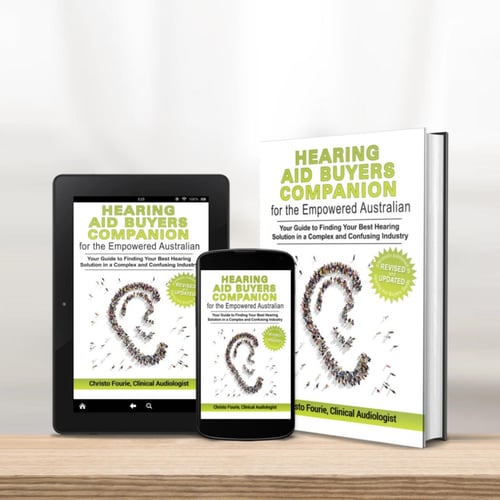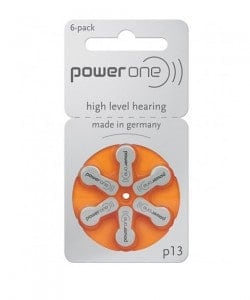Time To Read: 9 minutes
Happy holidays! We can help you ensure that it is with tips on how to travel with hearing aids
- Make a packing list
- About batteries
- At security
- On the flight
- At your destination
- General travel tips
The sky’s the limit when you have your best possible hearing.
And one of the questions we're asked regularly at Value Hearing is how to successfully travel with hearing aids - especially if you're planning to fly to your destination.
If travel is in your plans, we have some helpful tips to make sure you can make the most of your adventures abroad.
Make a packing list
Conduct a review of tubing, audio shoes, domes, batteries and other accessories that you use on a regular basis. Do you have enough to last through your trip and a couple of spares, just to be sure? We recommend giving your clinic a call a few weeks prior to departure to ensure essential consumables arrive in plenty in time.
While you’re talking to your audiologist, let them know you’re heading overseas, they may be able to tell you who to contact locally, should you need assistance.
Pack your old working hearing aids as a spares. Bringing them with you will bring provide peace of mind should you lose your current pair.
Another essential for your list is to pack remote or wireless accessories to give you the option of connecting your hearing aids to FM and loop systems. An increasing number of airports are installing loop systems to assist people with hearing loss hear important announcements. Even those with perfect of hearing will complain that airport announcements are difficult to understand. Make sure you keep an eye on the departure board and sign up for SMS/text message notifications from your airline to stay up to date.
About Batteries
If you’re using rechargeable hearing aids, make sure you add the charger to your pack. Mobile phone charger battery packs (also known as powerbanks), available from places like JB Hi-Fi and Officeworks, are a handy accessory if you’re not sure how long it might be before you can get to mains power. A international power adapter is also an essential must-have.
Keep spare batteries in your carry-on luggage just in case your flight might be delayed. Hearing aid batteries are allowed onboard flights.
Speak to your travel insurer about specifically itemising hearing aids in your coverage in the event of loss or damage.
To further protect your hearing aids, make sure you bring your case. For additional protection, keep the case in a ziplock plastic bag. This will protect the case (and your hearing aids!) from the risk of damage should a container leak in your baggage). Placing the hearing aid case in a pair of socks or folded up in clothing will also protect it from knocks and jostles.
At security
You don’t need to remove your hearing aid to go through security checkpoints but it is well worth letting security officers know you are wearing aids, and have batteries and chargers in your carry-on luggage.
On the flight
If you find yourself seated in an exit row, do let your flight attendant know. Passengers seated in these rows are required to assist flight attendants in the event of an emergency. Generally anyone with any sort of disability, or who traveling with children, are not seated in exit rows.
You don’t need to switch your hearing aid off during takeoff - indeed, it’s important to listen to the safety procedures! But if your hearing aid has any type of connectivity, you will need to switch them to flight mode when instructed by the flight attendant.
On long haul flights, preserve your batteries by switching them off when you’re ready to sleep. If you’re using rechargables, take advantage of the USB port typically found on the entertainment console on back of the seat in front of you to recharge your hearing aids while you sleep.
At your destination
Use your dehumidifier/dryer if you’re in a hot humid destination.
Take advantage of any FM and loop systems at the hotel or concert venues to make the most of your holiday experience.
Make sure you put away your hearing aid case in a secure location when you are not in your room. Unfortunately, small attractive cases, like the ones hearing aids come in, can be a target for thieves.
We also have some great tips on how to get the most from your hearing aids - especially in large gatherings.
We share our favourite accessories (and travel tips) for travel here!
- Packing cubes - lightweight, convenient and inexpensive, packing cubes will maximise room in your suitcase. Most packs come in a variety of sizes to keep everything wrinkle free. Use a small packing cube to keep a complete change of outfit in your carry-on baggage.
- Digital luggage scales - because no one wants to pay excess baggage fees! Some airlines are now enforcing weight limits on carry-on baggage.
- Ladies, bring a scarf such as a pashmina. It’s great accessory to freshen up a basic outfit, it’s small enough to carry in a bag until you need it and it can double as an light-weight blanket on a flight.
- Gents, pack a small microfibre towel like you might take to the gym. You can use it as an extra blanket on a flight and find this light-weight accessory handy to have.
- A foldable, reusable bag. You’ll be glad to have this slimline accessory when you want to pick up ‘just one more’ souvenir.
- Thongs, flip-flops, jandals… no matter what you call them, a pair of these in your checked baggage is a great emergency set of shoes, even if you’re nowhere near the beach.
- Plastic document pouch. Print out booking receipts and itineraries before you go and photocopies of important documents
- Use a zip up cable and gadget organiser to keep all the cables and chargers for your accessories in one place and tangle free.
- Scan or photograph important documents such as tickets, itinerary and passports and upload to online storage such as Google Drive. It’s a good back up to have should paperwork be lost.
- Invest in a Kindle or download the free Kindle app on your tablet or mobile phone. Load up with a selection of your favourite authors. You can save space by not bringing books to read on the road.
Do you want all this information and more in a single download?
The Hearing Aid Buyers Companion is just for you. It covers everything you need to know about hearing, hearing aids, the industry and how to get the best out of your hearing in a well organised, and easy to read PDF.
Simply complete the form below the image and get your FREE copy instantly.

Further reading
When hearing aids are an integral part of your lifestyle, it helps you get the most out of life. We share some lifestyle articles here:
- The colour of noise
- The history of hearing aids
- Safe driving with hearing loss
- Bright prospects for metal detectorists and gold prospectors
- Food, Your Ears and Good Hearing
- Why TV Commercials Sound Louder Than The Programs
- Why It’s Important To Overcome Social Isolation After Hearing Loss
- How to talk to a loved one about hearing loss
- Earprints as Unique as fingerprints
- Did I just hear that right? (Misheard song lyrics)
- Putting sound in movies
- Famous people who wear hearing aids

